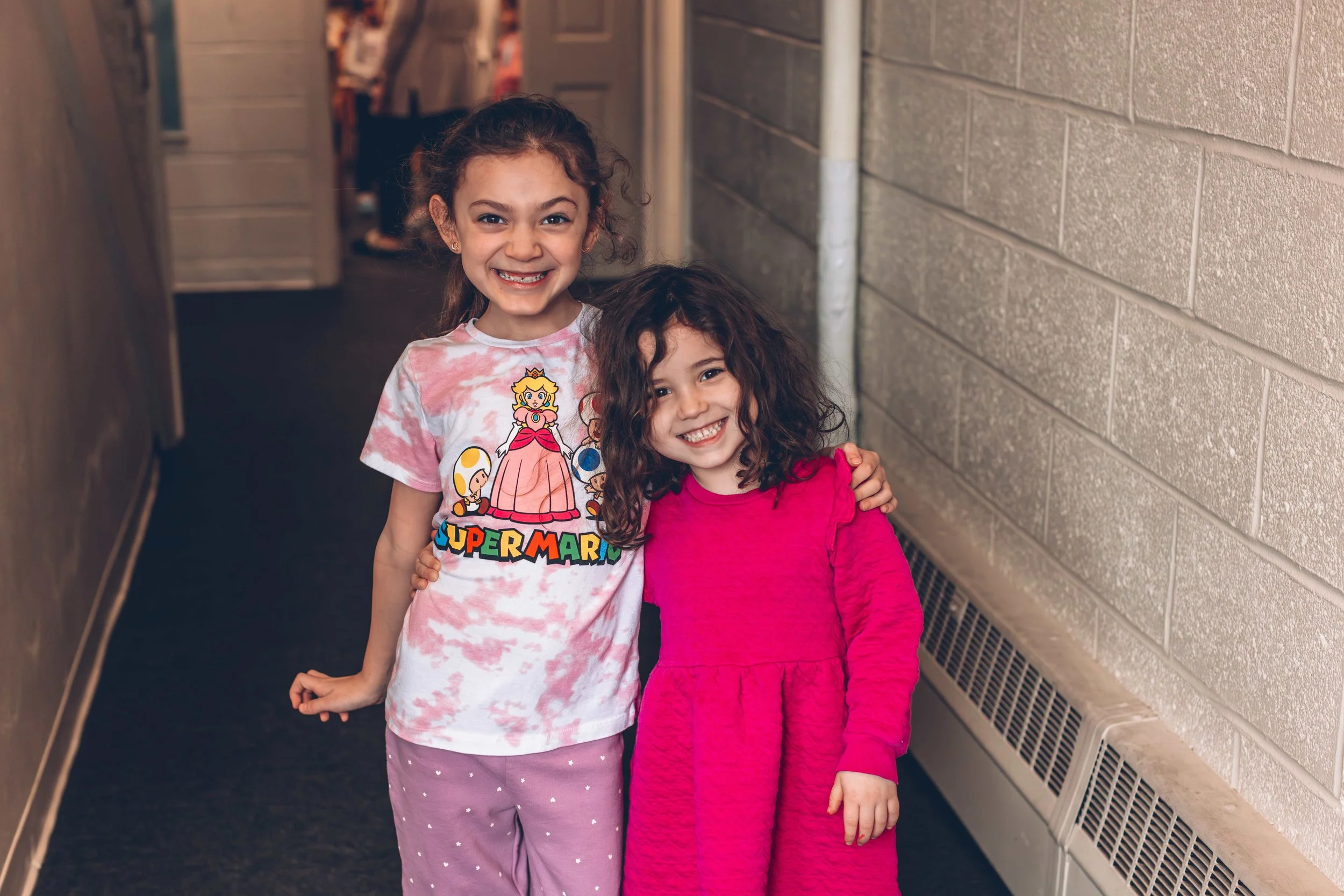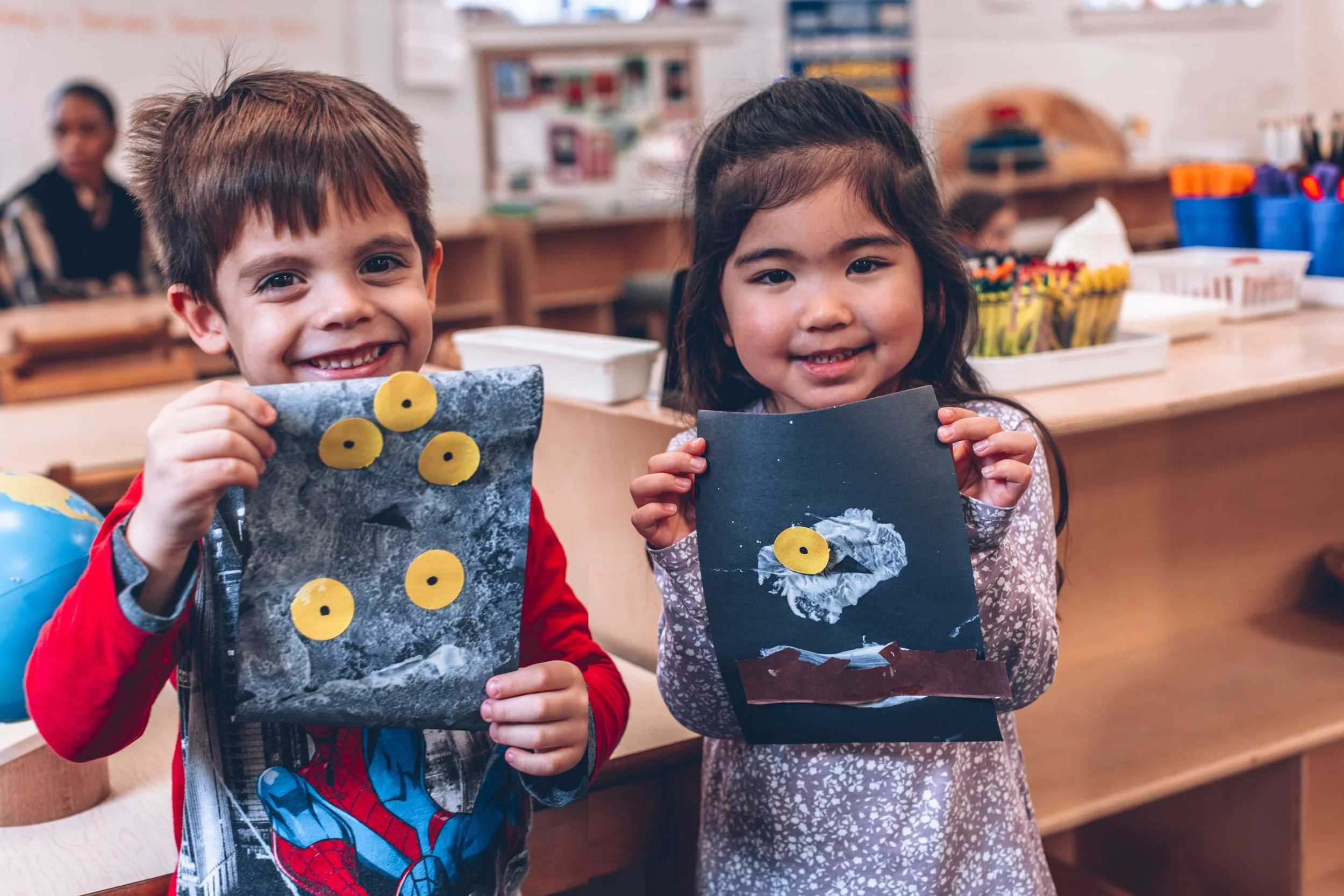
What is the most important thing
that children get from Montessori?
The Montessori approach is often described as an “education for life”. When we try to define what children take away from their years in Montessori, we need to expand our vision to include more than just the basic academic skills.
Taking A Different Approach
Normally, Americans think of school as a place where one generation passes down basic skills and culture to the next. From this perspective, a school only exists to cover a curriculum, not to develop character and self esteem.
But in all too many traditional and highly competitive schools, students memorize facts and concepts with little understanding, only to quickly forget them when exams are over. Studies show that many bright students are passive learners. They coast through school, earning high grades, but rarely pushing themselves to read material that hasn’t been assigned, ask probing questions, challenging their teachers’ cherished opinions, or think for themselves. They typically want teachers to hand them the “right answers”.
Putting The Child First
The problem isn’t with today’s children, but with today’s schools. Children are as gifted, curious and creative as they ever were, when they’re working on something that captures their interest and which they have voluntarily chosen to explore.
Montessori schools work to develop culturally literate children and nurture their fragile sparks of curiosity, creativity, and intelligence. They have a very different set of priorities from traditional schools, and a very low regard for mindless memorization and superficial learning.
Montessori students may not memorize as many facts, but they do tend to become self-confident, independent thinkers who learn because they are interested in the world and enthusiastic about life, not simply to get a good grade.
The Maria Montessori Mindset
Maria Montessori believed that there was more to life than simply the pursuit of wealth and power. To her, finding one’s place in the world, work that is meaningful and fulfilling, and developing the inner peace and depth of soul, allows us to love the most important goals in life.
Montessori schools give children the sense of belonging to a family and help them learn how to live with other human beings.
To reduce these principals to the most simplistic form, Dr. Montessori proposed that we make peace by healing the wounds of the human heart and by producing a child who is independent, at peace with their self, and secure. Dr. Montessori envisioned her movement as essentially leading to a reconstruction of society.
Montessori schools are different, but it isn’t just because of the materials that are used in the classroom. Look beyond the pink towers and golden beads, and you’ll discover that the classroom is a place where children want to be -because it feels like home.
Supplemental Reading On The Montessori Mindset
Lessons for Grownups From A Montessori Classroom by Darice Vandegrift
(pdf available for download below)








